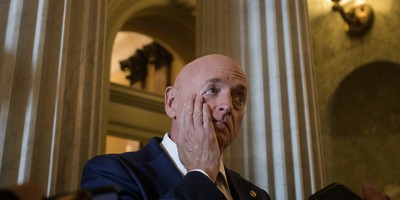The Washington Post recently hypothesized that you can gage the state of the economy by the state of men’s underwear drawers. That’s because we’re supposed to assume that men will purchase underwear at a relative steady and stable rate. The theory, as quoted in the Post article: “Sales of men's underwear typically are stable because they rank as a necessity. But during times of severe financial strain, men will try to stretch the time between buying new pairs, causing underwear sales to dip.”
So apparently we are to believe that we got into this recession at the consumer level because people were splurging on homes, cars, and vacations they couldn’t afford. However, when it’s time to cut back, American men will cling to that old pair of underwear for as long as they can. Alright – that actually does pass my sniff test (I mean the theory, not the underwear). When men see $45 underwear on a male model in a Hugo Boss ad, what he’s likely thinking (besides “he looks gay”) is that the guy’s wearing the fiscal equivalent of his next beer keg. This is why the underwear purchase loses out.
Women would never do this – perhaps with the exception of women who make their own soap and take home the shampoo from a stay at a Motel 6. There’s no way women’s underwear – or any other items made exclusively for women – could ever be used as a reliable economic indicator. Women will remortgage the house to fit a few more lingerie purchases onto their various perpetually-juggled credit cards. I know of a few who have personally done so.
Women’s purchases are also difficult to gage because – and I know it’s not politically correct to say this, but it’s the truth – they aren’t always paying for the things they buy. They may be living “Vegas style”. And by that, I mean they’re blowing some other guy’s money like pretty girls do at the Blackjack table. Some women live like every day is a lottery jackpot spending day. Men don’t have the luxury of doing this -- unless they were once married to Britney Spears.
Recommended
So women’s underwear are unreliable, and the Underwear Index is therefore highly sexist. Fair enough. But women can rest assured that we do manage to work our way into the equation and muck it all up: Underwear Index keeps a running tally of how many billions of dollars in total are spent on men’s undies. It doesn’t necessarily mean that men are buying LESS underwear, though, because as a British Verdict Research Report points out, grocers are putting cheap underwear under our noses alongside the plums and bananas. This also increases the likelihood that it’s not even a man buying the underwear for himself, but rather a woman doing the grocery shopping. She could potentially pick up five 3-packs for less than the price of a single pair of Hugo Boss briefs. This would mean that the number of total underwear purchases increase while overall total spent remains the same or even decreases. So as the underwear market diversifies and expands, the Underwear Index becomes increasingly unreliable.
There are better economic indicators in the consumer market. I have personally found that when times get tough, the first thing to go out the window for me and my friends is the health care plan. For $600 or more a month for a single person, many people feel that they’re better off taking their chances on getting slammed by a city taxi. The only time you’re really screwed is if you come down with cancer, but that’s a 1 in 3 shot. The choice then becomes: 33% chance of cancer vs 100% chance of having to pay $600 or more a month. I have found that most of my friends have chosen to take their chance on the cancer. And they weren’t even illegal immigrants.
Another thing to go out the window is expensive beverages. Why blow $10-$15 dollars a day on Starbucks coffee or specialized water when the stuff coming out of the tap isn’t even diseased.
Which brings us to perhaps the most reliable economic indicator: The McDonald’s Index. McDonald’s restaurant global profits have climbed every month during the recession. That’s because McDonald’s is offering more quality choices for cheaper prices. Starbucks has had to close 1,000 stores in America because McDonald’s has been drinking their Frappuccino.
Actually, maybe when the dust settles on this recession we’ll find that we haven’t become poorer, but rather just smarter.

























Join the conversation as a VIP Member